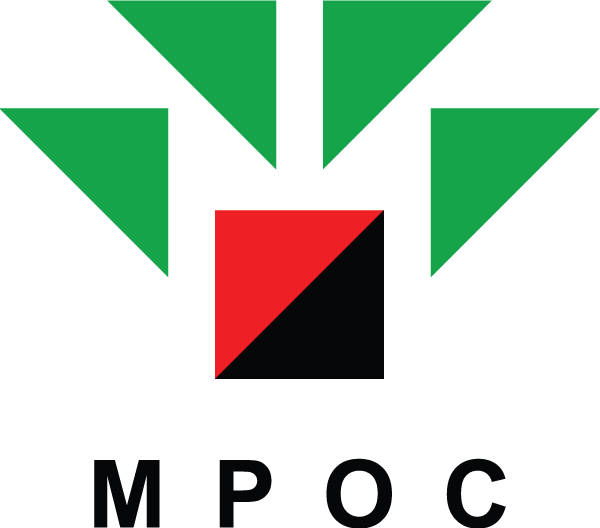
ORGANIZED BY:


Section 2: Global Palm Oil Market Focus:
Palm Oil Market Opportunities in Turkey

Mr. Faik Genç
Faik Genç has been in the commodities business for 32 years. He began his career at Turkey’s top industrial company, Sabancı Group’s London based trading company in 1985, with a degree in Mechanical Engineering from Middle East Technical University. He left the company as Commercial Director in 1996, moving to Turkey and joined crusher/refiner Doysan A.Ş. as Commercial Director. He was appointed General Manager in 1999. He took an active role in establishment of joint-venture with ADM in 2000 and he was appointed Chief Operating Officer of ADM/Turkey following ADM’s total acquisition of the company. After leaving ADM, he set up AgriPro in the beginning of 2008. AgriPro provides transparent brokerage and consultancy to the fats & oils industry, publishing regular reports which are sold to over 60 Turkish companies. AgriPro published the first ever detailed “Turkish Fats & Oils Industry Report" in January 2012 and released updates in 2014 and 2017. In 2009 AgiPro took up events organising and organised “Corn Oil Istanbul†international conference in 2009 and “Fats & Oils Istanbul†events in the same year until 2017. “Fats & Oils Belgrade - 2018†has been the 10th international event AgriPro has organised. Faik Genç is a former Vice Chairman of Turkish Vegetable Oils Industrialists Association. He is a sought after speaker, especially on sunflower complex, as well as Turkish fats & oils industry and regularly appears as a speaker at international events in countries such as Bulgaria, Malaysia, Russia, Turkey and Ukraine.
VIEW PROFILE
Turkish vegoil market is one of the fastest growing in the world. Turkey is the world’s 5th or 6th largest importer country of oils and oilseeds, after China, India, Pakistan, Mexico and Japan and assumes a very central role in the flow of trade. Turkish imports come from the Black Sea countries, Southeast Asia and Americas. Turkey also holds a strong export market in the Middle East. Being a country largely depending on imports of raw material, the vegoil sector is less likely to be adversely influenced by government interventions, unlike say the flour milling Industry.
Vegetable oil consumption in Turkey is growing rapidly after the stagnation of 2016 and 2017 amidst jeopolitical difficulties concerning Syria, Turco-Russian jetdowning crisis of 2015 and July 2016’s failed military coup attempt. Young and increasingly urban population together with country’s recent high growth represent a significant growth potential for the industry. For decades, Turkey has been a major vegoil importing country as the increase in consumption always outpacing domestic oilseed production. Turkish vegoils industry is therefore well experienced in import procedures and familiar with obligations of international trade and is much more sophisticated than other agricultural sectors in the country.
Total vegoils consumption in Turkey will reach 2.4 million tonnes, or 29.5 kg of per capita in 2018/19 season. Out of home usage increased sharply in the last season following 2 stagnation years.
Turkey’s total vegetable oils imports for 2018/19 season will reach 1.73 million tonnes with palm oils accounting to 750,000 tonnes of it. Exports in 2018/16 season will have reached 900,000 tonnes. Although new refineries built in Iraq will hamper Turkey’s liquid oil exports Syria, after 6 years of civil war, will soon become the main export market for Turkish fats and oils exports.
Domestically fats and oils market is predominantly based in Istanbul and surrounding industrial areas. Istanbul accounts for about 20% of all Turkish population and definitely is the main consumption location for almost anything. Other major active areas are the Aegean, country’s 3rd largest city Izmir and surrounding cities and tourism resorts, southern large city of Adana and its surroundings, emerging megacities of Bursa, Konya, Gaziantep, Kayseri and Samsun.
Out of Home and use of palm based industrial fats has become the new growth area for the Turkish fats & oils industry since 2010. Growing tourism income surpassing 35 billion dollars in 2018: and increasing number of shopping mall food halls in the megacities supports consumption of palm based fats and oils consumption.
Vegetable oil consumption in Turkey is growing rapidly after the stagnation of 2016 and 2017 amidst jeopolitical difficulties concerning Syria, Turco-Russian jetdowning crisis of 2015 and July 2016’s failed military coup attempt. Young and increasingly urban population together with country’s recent high growth represent a significant growth potential for the industry. For decades, Turkey has been a major vegoil importing country as the increase in consumption always outpacing domestic oilseed production. Turkish vegoils industry is therefore well experienced in import procedures and familiar with obligations of international trade and is much more sophisticated than other agricultural sectors in the country.
Total vegoils consumption in Turkey will reach 2.4 million tonnes, or 29.5 kg of per capita in 2018/19 season. Out of home usage increased sharply in the last season following 2 stagnation years.
Turkey’s total vegetable oils imports for 2018/19 season will reach 1.73 million tonnes with palm oils accounting to 750,000 tonnes of it. Exports in 2018/16 season will have reached 900,000 tonnes. Although new refineries built in Iraq will hamper Turkey’s liquid oil exports Syria, after 6 years of civil war, will soon become the main export market for Turkish fats and oils exports.
Domestically fats and oils market is predominantly based in Istanbul and surrounding industrial areas. Istanbul accounts for about 20% of all Turkish population and definitely is the main consumption location for almost anything. Other major active areas are the Aegean, country’s 3rd largest city Izmir and surrounding cities and tourism resorts, southern large city of Adana and its surroundings, emerging megacities of Bursa, Konya, Gaziantep, Kayseri and Samsun.
Out of Home and use of palm based industrial fats has become the new growth area for the Turkish fats & oils industry since 2010. Growing tourism income surpassing 35 billion dollars in 2018: and increasing number of shopping mall food halls in the megacities supports consumption of palm based fats and oils consumption.
REGISTER OR LOGIN TO VIEW FULL REPORT
REGISTER OR LOGIN TO VIEW PRESENTATION SLIDES
Questions & Answers
Please login to post comments.







